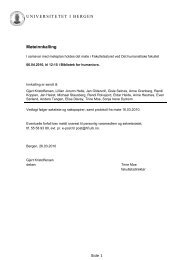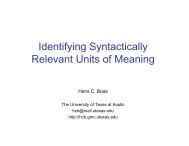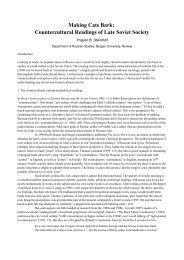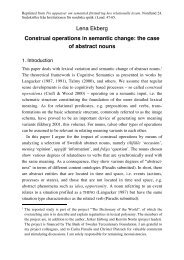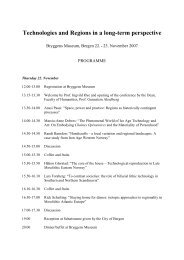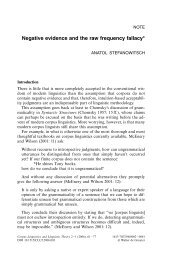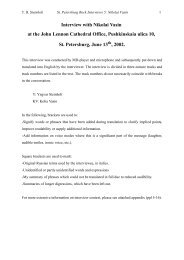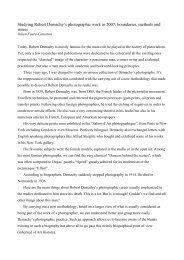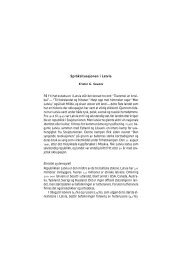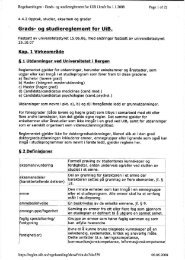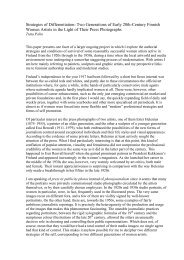THE BOOK OF POEMS IN TWENTIETH-CENTURY ... - TopReferat
THE BOOK OF POEMS IN TWENTIETH-CENTURY ... - TopReferat
THE BOOK OF POEMS IN TWENTIETH-CENTURY ... - TopReferat
You also want an ePaper? Increase the reach of your titles
YUMPU automatically turns print PDFs into web optimized ePapers that Google loves.
While the "endless cycle" of despair and hope described in Khodasevich's Путем<br />
зерна and Gippius's Сияния may seem to be constricting, in fact it too exhibits a<br />
centrifugal force. Khodasevich purposefully designed the final version of his book to be<br />
an epic, universal statement about the poet in general, not a biographical account of his<br />
own spiritual struggle. His lyric hero can be extended outside of the text to all poets and<br />
all humanity. Gippius personalizes her hero more than Khodasevich does. She opens the<br />
book with a very private address to her personal muse, and she incorporates certain<br />
aspects of her biography into the text, most notably her androgyny. This specificity is<br />
balanced, however, by her exploration of the universal themes of faith and home.<br />
Gippius does not limit her book to a specific time, place, or physical persona. In<br />
"Лазарь," for example, she directly links her hero's personal fate to that of Russia and<br />
Lazarus, expanding the focus beyond the lyric "я." 267<br />
Shvarts does the opposite, taking the universal story of Christ's life and death and<br />
transforming it into the personal story of a very particular nun, Lavinia, in a very specific<br />
convent of the circumcision of the heart. She creates a fictional character around which<br />
the entire book, including epigraphs and letters, is focused. Stankiewicz has pointed to<br />
such extratextual elements as a typical sign of centrifugal texts. 268<br />
In Труды и дни<br />
Лавинии, however, these outside references have a centripetal effect. They do not direct<br />
267 Lydia Ginzburg points to this same extension of the lyric persona in Blok's trilogy: строя лирическое<br />
я, он строил не психологическую целостность частной личности, но эпохальное сознание своего<br />
современника в полноте и многообразии его духовного опыта. Ginzburg, O lirike, 244. Similarly,<br />
Aleksandr Kushner points to the potential universalization of the lyric hero in his article "Книга стихов":<br />
Книга стихов, на мой взгляд, дает возможность поэту, не обращаясь к условным персонажам,<br />
создать последовательное повествование о собственной жизни, закрепить в стихах процесс,<br />
историю развития своей души, а следовательно, и души своего современника. Книга стихов—это<br />
возможность для лирического поэта в обход большого жанра создать связный рассказ о времени.<br />
Aleksandr Kushner. Apollon v snegu: zametki na poliakh. (Leningrad: Sovetskii pisatel', 1991), 47.<br />
268 "[E]xpansion of the text by commentaries and explanations (which are not meant to explain, but to<br />
diversify the text) has also found expression in the increased tendency towards transtextuality, i.e., towards<br />
the use of the more or less explicit references of a given text to other texts." Stankiewicz, "Centripetal and<br />
centrifugal structures," 228.<br />
202



